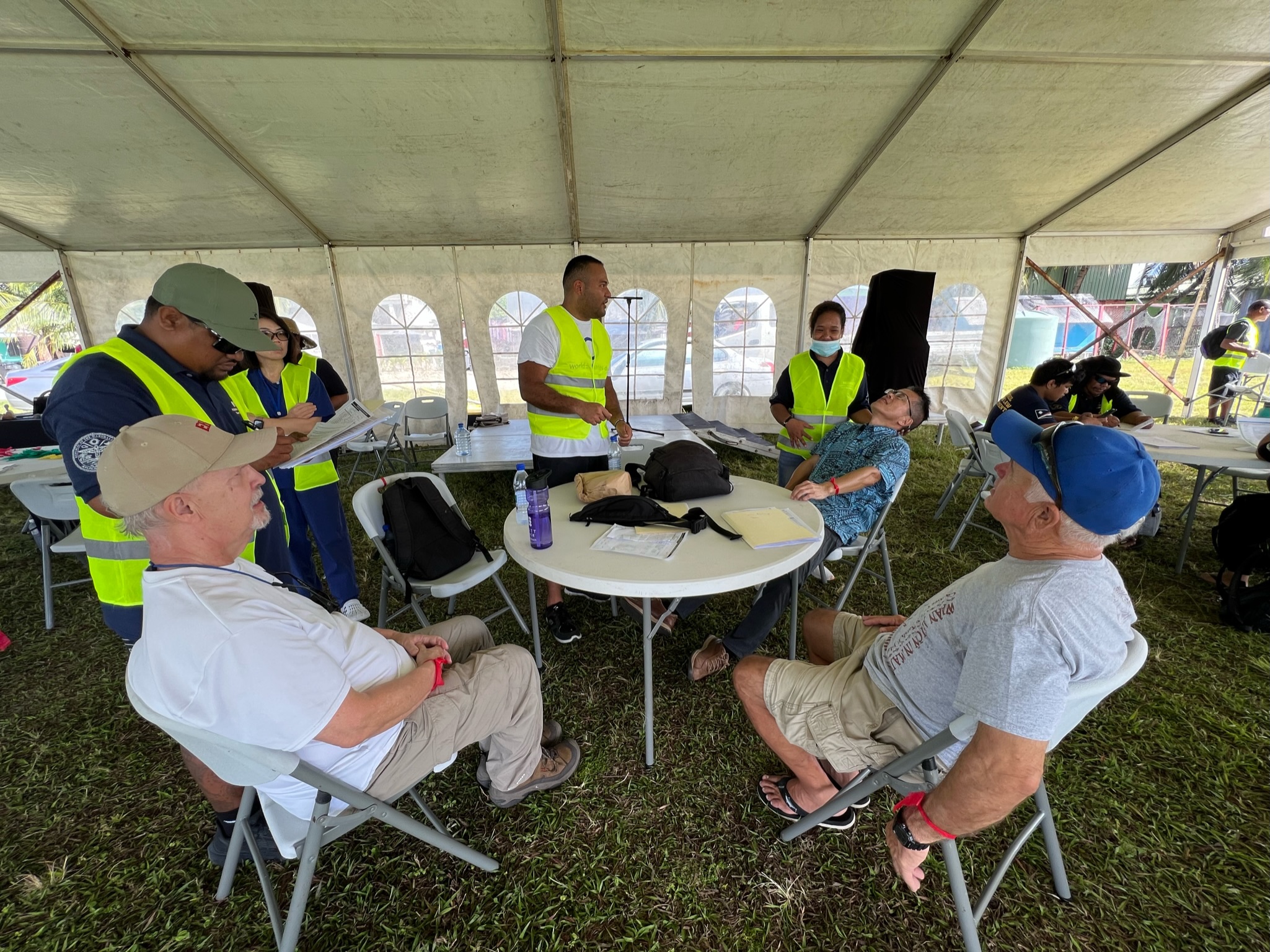The Ministry of Health and Human Services (MoHHS) of the Republic of Marshall Islands (RMI) recently completed a training for 32 members of their new national Emergency Medical Team (EMT), called the Marshall Islands Medical Assistance Team, or MI-MAT. The training was supported by the World Health Organization (WHO) with funding from the Government of the United States through the United States Agency for International Development (USAID) and the Government of Japan.
As the Pacific continues to face disasters worsened by climate change, alongside infectious disease outbreaks, national EMTs have proven to be a crucial tool for health emergency response in the region. In the last few years, national EMTs in the Pacific have been activated and deployed in response to the COVID-19 pandemic, as well as for responses to cyclones and typhoons, volcanic eruptions, tsunamis and multiple outbreaks.
“MI-MAT was established this year and the team has already hit the ground running, responding to COVID-19 and a drought here in the RMI. We are proud of the doctors, nurses, pharmacists, paramedics, logisticians, environmental health specialists, epidemiologists and other staff that together form MI-MAT. These individuals have volunteered their skills and their time to save lives,” said Honourable Joe Bejang, RMI’s Minister of Health and Human Services. “This EMT training is an important initiative to strengthen MI-MAT and improve the team’s readiness for emergencies, and we thank WHO, USAID and the Government of Japan for making this possible.”
The training for MI-MAT was organized by WHO to boost the team members’ knowledge and skills so they can rapidly deploy, be fully self-sufficient and provide high-quality clinical care in the aftermath of a health emergency, no matter where it may occur in the RMI’s islands and atolls. In addition to EMT training, which is based on global principles and standards for Emergency Medical Teams, WHO is also supporting MI-MAT with the procurement of the essential equipment and supplies they need to run an emergency field clinic (known as EMT “cache”), and development of detailed team Standard Operating Procedures (SOPs).
“At WHO, we recognise the importance of national EMTs as part of the wider effort towards strengthening health security – particularly in the Pacific Islands, where logistics is especially challenging. Leveraging trained local health workers and logisticians for local response makes sense because they are the closest and most familiar with the local context and health systems,” explained Dr Momoe Takeuchi, WHO Country Liaison Officer for Northern Micronesia. “We are grateful to the RMI Ministry of Health and Human Services for their leadership, as well as to USAID and the Government of Japan for their continuing investments in EMTs in the Pacific.”

Marshall Islands Medical Assistance Team (MI-MAT) participate in a simulation exercise during the EMT training. Photo: WHO/Sean Casey




